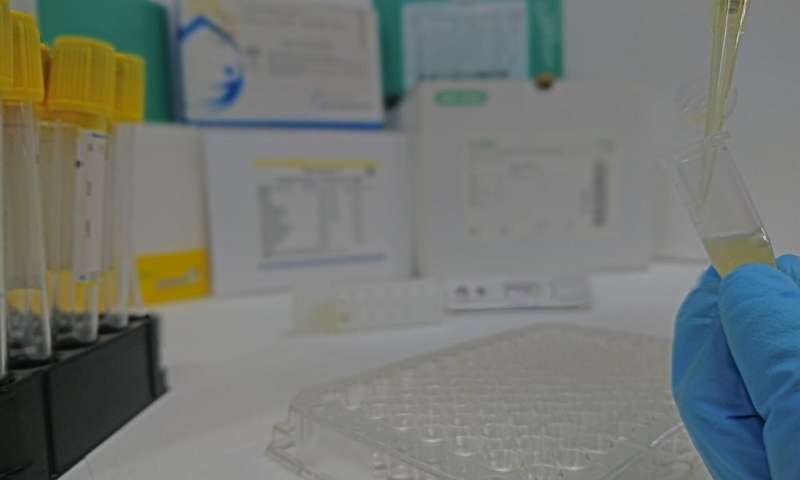
Accurate and timely diagnosis of the tropic disease visceral leishmaniasis (VL) is one of the pillars for reducing VL deaths. Currently available serological tests for diagnosing VL vary widely in their performance and may, as a whole, be inadequate for VL diagnosis, researchers report in PLOS Neglected Tropical Diseases.
Visceral leischmanisis is the most severe form of leishmaniasis and is potentially fatal if not diagnosed and treated in a timely manner. Approximately 96% of the VL cases in South America are reported in Brazil, where a range of serological tests are available for diagnosis. No previous study has comparatively analyzed the performance of these tests.
In the new work, Mariana Freire of the Oswaldo Cruz Foundation, Brazil, and colleagues directly compared the performance of eight diagnostic kits on a panel of 236 stored blood samples from patients with clinically suspected VL, including 77 HIV-infected patients. The kits tested were three enzyme-linked immunosorbent assays (ELISAs), two immunofluorescence antibody tests (IFATs), two immunochromatographic tests (ICTs) and one in-house direct agglutination test (DAT-LPC).
The highest accuracy rate among non-HIV-infected patients was seen in one of the ICTs (96.2% accuracy, 95%CI: 92.8-99.7) and the DAT (95.6% accuracy, 95%CI: 91.9-99.3). For the ELISA tests, the maximum accuracy was 91.2% and for the IFATs, the maximum accuracy was 84.3%. In addition, a lower accuracy was seen among HIV-infected patients. There is no consensus about the minimum sensitivity and specificity rates required for a VL diagnostic test. If we considered the minimum sensitivity and specificity of 95% and 98% that a previous paper had laid out as necessary, none of the diagnostic tests evaluated here are satisfactory.
In this study, the authors demonstrated significant difference in the performances of different serological tests available for VL diagnosis in Brazil. “Our findings highlight the need for more stringent criteria for the registration of diagnostic products in Brazil, including the requirement to carry out validation studies before marketing,” the researchers say. “In a future, broader analysis, in addition to performance, other aspects of these tests should be considered before a diagnostic strategy is defined, such as cost-effectiveness, national production/autonomy and accessibility.”

